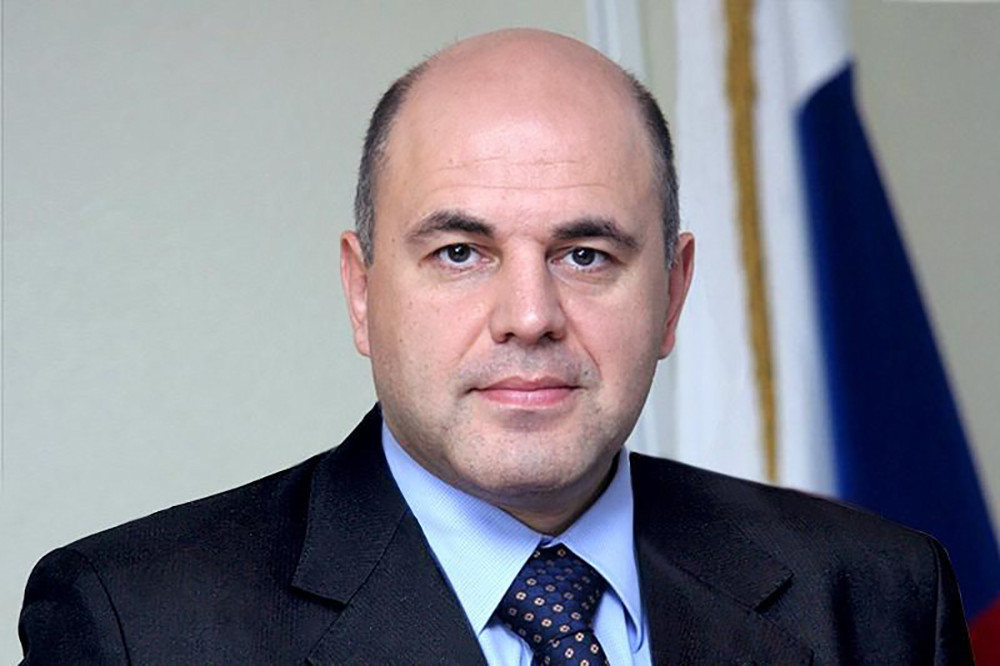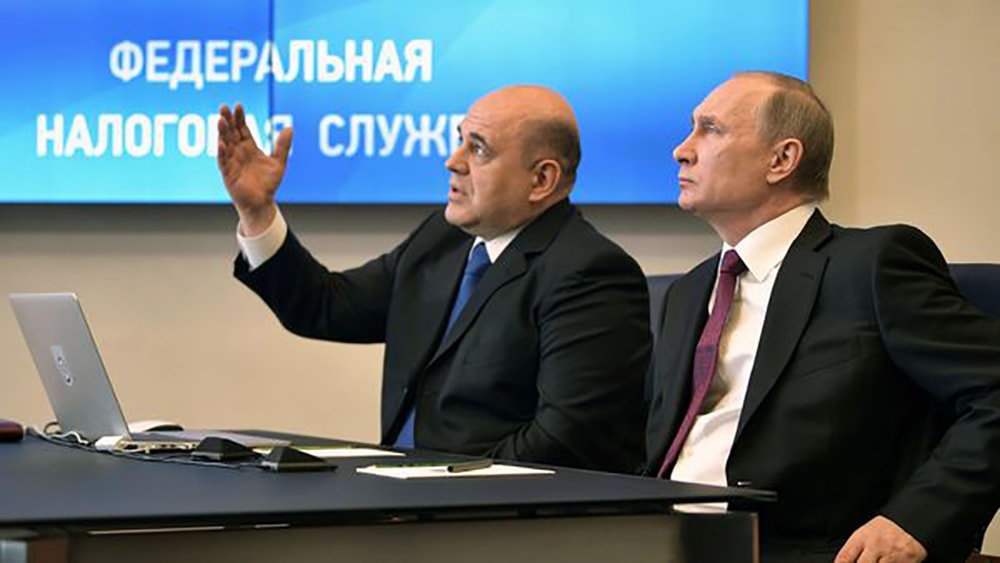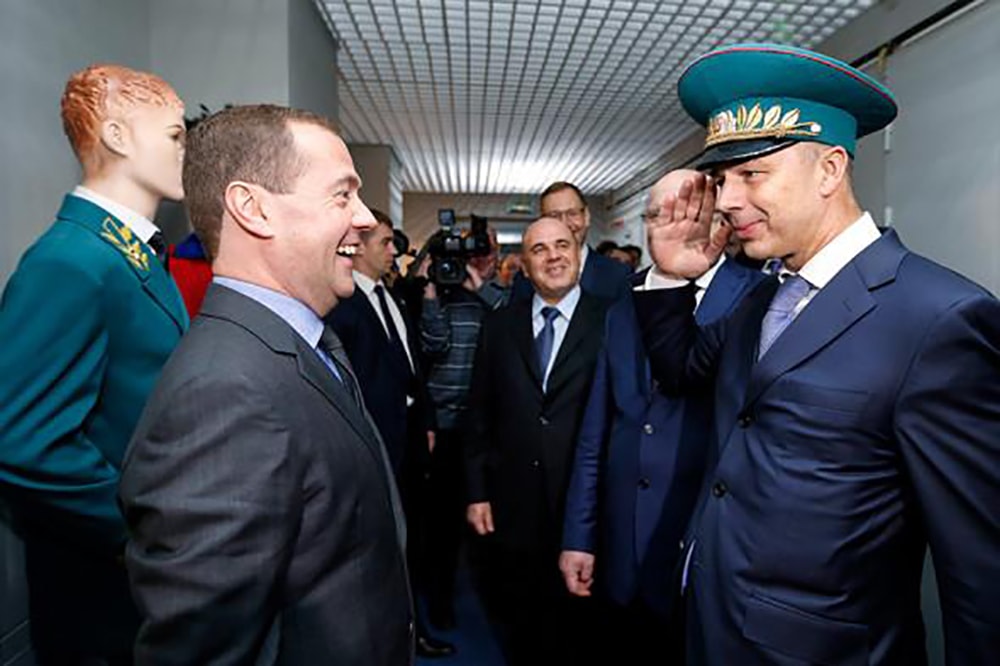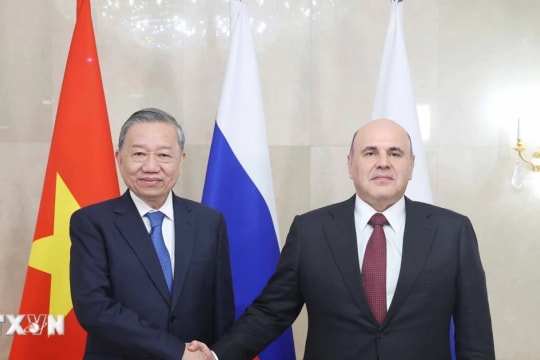Mikhail Mishustin - the chosen one for change
(Baonghean) - An unexpected scenario came to Russian politics right in the first days of the new year, when Prime Minister Dmitry Medvedev and the entire Russian Government resigned. Immediately after that, President Vladimir Putin nominated Mikhail Mishustin - a mysterious figure to the world to the position of head of government.
Reform options
Russian Prime Minister candidate Mikhail Mishustin is a rather mysterious figure to the press and public opinion. He is 53 years old and is currently the Head of the Federal Tax Service. The nomination was made by President Putin right after reading the Federal Message on January 15, making people think that the major personnel "reshuffle" in the Russian Government had been carefully prepared in advance. Even in Russian politics, Mr. Putin's nomination of Mr. Mishustin was a big surprise to many people. This move reminds people of the day when the late President Boris Yeltsin promoted a man named Vladimir Putin (then quite unknown) to replace him exactly 20 years ago, opening a new period in the history of Russian politics, as well as for Mr. Putin himself.
 |
| Russian prime minister candidate Mikhail Mishustin. Photo: TASS |
Mikhail Mishustin was born in Moscow and graduated from the Moscow Machine Tool Institute (now the Moscow State University of Technology “Stankin”). His specialty was computer systems engineering. He also received a doctorate in economics. In the 1990s, Mishustin worked at the International Computer Club, which attracted information technology to the country. In 1996, he headed the board of directors of this organization. Mishustin’s career changed when he decided to move to work in the state agency in 1998 - in the tax sector. At first, he was an assistant to the head of the State Tax Service, in charge of accounting and control information systems, and then Deputy Director. He held the same position when he moved to the Ministry of Taxation and Tax Collection. He held the position until 2004 under the leadership of George Boos, Alexander Pochik and Gennady Bukaev.
His career took off in 2009 when Mishustin entered the Russian President's pool of resources. He was promoted to head the Russian Federal Tax Service in 2010 and was dubbed the "Tax Officer of the Future" by the Financial Times. He was recognized for his efforts to streamline the work of the tax system nationwide. His efforts have almost created a major reform of the Russian Tax Service. The obvious beneficiaries are the Russian people, as this reform has simplified the procedures for declaring and paying taxes. Mishustin's method, called the "One Window" system, cut down on paperwork by digitizing many processes and building a unified database last year. The Russian government's budget revenues have also increased rapidly.
“Mishustin knows more about technology than anyone else and that knowledge allows him to use machines to solve problems,” Vyachslav Fetisov, a former Russian hockey legend and now a politician, said of the new Russian Prime Minister. Fetisov also called Mishustin “very responsible” and systematic, which is a very important quality today.
Before that, Mikhail Mishustin also worked at the Federal Land Administration in a leadership position. In 2007, he headed the Federal Agency for Management of Special Economic Zones, but he left this position after only 1 year. In 2008, Mishustin left the public sector to try his hand at an investment company for 2 years. He is considered one of the 3 officials with the largest assets in Russia. Forbes magazine estimates that Mishustin earned about 78 million rubles (equivalent to more than 2 million USD) as Chairman of UFG Capital Partners and Managing Partner of UFG Asset Management.
 |
| Mikhail Mishustin in his role as head of the Russian Federal Tax Service and President Vlarimir Putin. Photo: Reuters |
Open and dynamic
In addition to his success at work, Mikhail Mishustin is considered an open and dynamic leader, in contrast to the dryness of the work he undertakes.
Mishustin is a big fan of sports. In 2006, he participated in an exhibition swim at the opening ceremony of the Russian Swimming Championships at the Olimliysky Sports Complex. Politicians and athletes competed in the 50m freestyle. Another hobby of Mishustin is hockey - a passion that is very similar to that of current President Vladimir Putin. Mishustin personally plays on the field, and is also on the supervisory board of the CSKA hockey club. "Mr. Mishustin has good connections in law enforcement agencies. He is often seen at hockey matches with senior officials of the Federal Security Service (FSB) and the Ministry of Internal Affairs," a source said in 2010. But there are some differences between the two men, while President Putin rarely uses technology, Mishustin believes that Russia needs to adapt to the age of digital technology and artificial intelligence or else fall behind. "We are entering the 4.0 industrial revolution, this is a digital world" - he said.
Successor?
Mikhail Mishustin is becoming the center of attention in Russia when President Putin nominated him as the new prime minister, the person who is likely to succeed Putin. People compare the way Mishustin "came to light" almost like the way Putin left the presidency in 2008 to become prime minister under Medvedev and Medvedev then became prime minister when Putin was elected for a third term in 2012.
 |
| Former Prime Minister Dmitry Medvedev, Finance Minister Anton Siluanov and head of the Federal Tax Service Mikhail Mishustin during a visit to the Federal Tax Service Data Center No. 1 in Gorodets, 2015. Photo: TASS |
But it’s just the beginning for the tech guru and tax reformer. Politics is not the IT world, and certainly not the hockey arena. “Mishustin has no political experience, is not popular with voters, and is not part of Putin’s inner circle,” says Tatiana Stanovaya, a commentator at the Carnegie Moscow Center. She sees little chance of Mishustin running for president in 2024. Instead, he will take the job of head of the Russian government because he is a technocrat – chosen for his expertise, especially in economics, rather than for political calculation. He was chosen as prime minister to create “a more competent leadership,” writes Dmitri Trenin, head of the Carnegie Moscow Center.



